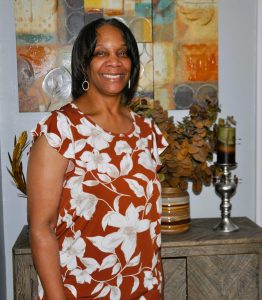
By Dianne Maddix, MA, BA
Grief has been defined in many ways, but most definitions share the key component that grief is an emotional response to a significant loss in one’s life. It has been variously described as mental, emotional, behavioral, psychological and social responses to a loss. While most people think of grief as mourning the death of a loved one, it can also be a reaction to any meaningful or “shadowloss,” such as a job, a relationship, a divorce, a falling out with a close friend or the loss of independence or identity as life circumstances change.
A few days after mourning the loss of my mother, in my heart, I heard a still, soft voice say that He (God) didn’t need my permission to call my mom, His creation, home. As much as I was hurting, this made me realize that our loved ones are shared with us by God’s choice only on His timetable, unknown to us. I often thank God for sharing her with us.
When I returned to work, my supervisor told me, “Take as much time as you need.” The tone and sincerity in her voice were different than other times she had spoken to me. I thanked her for saying this directly to me and told her how much it meant. I learned a number of ways to survive and grow stronger after the loss of my mother.
MY STEPS TO COPING WITH LOSS
- Praying
- Reminiscing about one of her favorite quotes, “Keep looking UP!”
- Listening to music and podcasts related to grief and bereavement
- Enjoying family and the company of others
- Reading devotionals
- Spiritual counsel
- Saying affirmations
- Watching movies
- I acknowledged the sugar/salt/pepperiness of the challenging times with praise and laughter.

I created an art piece that symbolizes her personality: a yellow flower for her sweetness and love; white flowers for her saltiness; and smoky gray for her pepperiness.
Hearing the sweet, pure early morning song of a bird lets me know that a new day has been born. The sound of crickets at dusk or late at night indicates another day has ended. It helps me to know my healing is taking place moment by moment.
May the memory of our dear ones be a blessing and inspiration for us all.
Dianne Maddix is a Certified Grief Life Coach and End of Life Doula (by referral and appointment) and Certified Mental Health Prevention Specialist. Maddix is also an educator who has taught middle-school aged students.
Shadowloss is a loss IN life, not a loss OF life.
A thanatologist is a professional or academic expert who studies and addresses the multifaceted aspects of death, dying, and grief. Thanatologists work in various settings, including hospitals, hospices and counseling centers, offering education, comfort and practical assistance to navigate the complexities of end-of-life experiences.
Shadowloss is a psychological tool developed by American thanatologist, Cole Imperi. It is a non-clinical term and not a diagnostic tool. It is a term an individual may use to better describe the impact of a particular loss experience.
Shadowlosses may or may not be associated with a death and most often refer to other kinds of losses. They are a type of loss that has a multifaceted impact not only on the life of an individual, but also the social network in that person’s life. Shadowlosses impact a person’s social connections, status in the community, overall well-being and family relationships.
Source: Coleimperi.com





